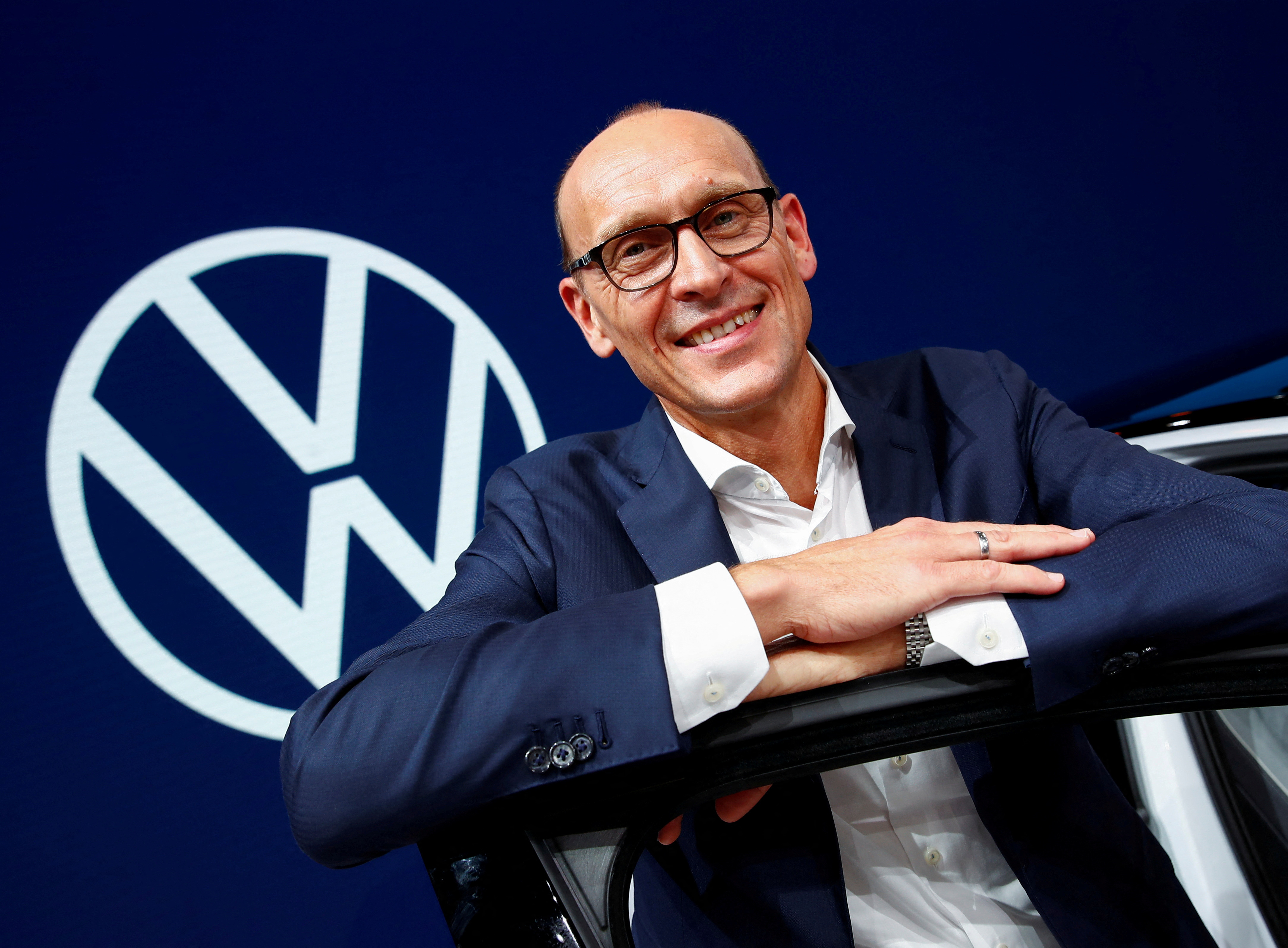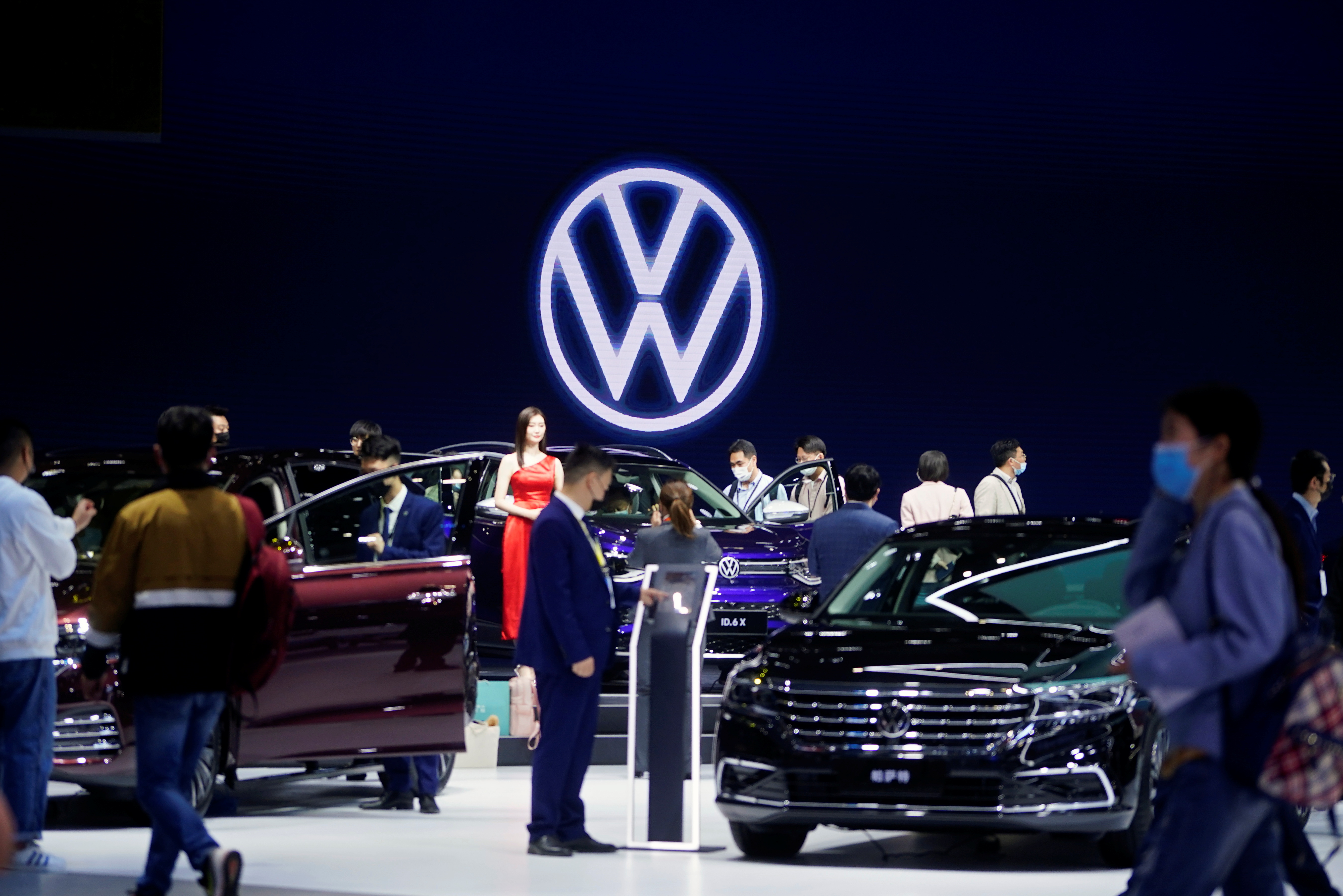Summary
- Volkswagen China chief visited Xinjiang plant on Feb 16-17
- Labor standard verification impossible, campaigners say
- Plant holds reputational and legal risk, investor says
- Volkswagen depends on Chinese profits for EV research
Volkswagen (VOWG_p.DE) attracted criticism from campaigners and a major investor on Tuesday after the head of its Chinese business said he noticed no sign of forced labor during a visit to the automaker’s Xinjiang plant.
The works council, which is represented on Volkswagen’s supervisory board, in a statement following Ralf Brandstaetter’s remarks, said the company must shed light on the plant’s value for the business and take a position on human rights violations in China.

Activists, an international group of lawmakers, and the head of sustainability and corporate governance at top-20 Volkswagen investor Deka Investment said verifying labor standards in the region was impossible.
“However much Mr. Brandstaetter makes an effort, Volkswagen cannot be certain. That leads not only to reputational risk, but also legal issues, for example with supply chain laws,” Deka’s Ingo Speich said.
Volkswagen depends on profits from China to fund electric vehicle research and development in Germany and is battling domestic competitors to retain market share in the country.
Brandstaetter said in January it was crucial to act from a “position of strength” within China and remain strong in the market while also increasing sales elsewhere.
On Feb. 16-17, he visited the German group’s jointly-owned facility with China’s SAIC (600104.SS) in Xinjiang, together with Volkswagen’s compliance and external relations chiefs in China.
Rights groups have recorded human rights abuses in Xinjiang, including mass forced labor in detention camps that the U.N. said could be regarded as crimes against humanity. China has refuted any abuses in Xinjiang.
Volkswagen says it has never found proof of forced labor among its Xinjiang workforce and its presence is positive for locals. It negated reports it had kept the plant running because Beijing had imposed a condition it had to continue producing across China.
“I can talk to people and draw my conclusions. I can try and verify the facts [from joint venture partner SAIC], and that’s what I did. I didn’t find any contradictions,” Brandstaetter said, adding it was his first visit but not his last.
Reputational Risk
Brandstaetter said he spoke exhaustively to seven workers individually – including Han Chinese, Kazakhs, and Uyghurs – some in English and some through a Volkswagen translator, and held shorter talks with other workers on his tour, which he said took place without government supervision.
But Luke de Pulford of the Inter-Parliamentary Alliance on China, a group of legislators from thirty democratic nations including Germany, Britain, and the United States, said labor standards could not be verified since members of the Uyghur minority could not talk openly without fearing for their safety.
The plant’s workforce has been slashed by 65% since the pandemic and it only carries out final quality checks and the installation of certain features before delivering vehicles to dealers. Planned output for 2023 is 10,000, in comparison to the 50,000 targeted when it opened.
Buy Bitcoin NowThe automaker was initially applauded for opening the plant, chief lobbyist Thomas Steg said, comparing the goal of building infrastructure and improving living conditions to Germany’s reunification.

But the atmosphere changed after countless deadly attacks in Xinjiang and elsewhere between 2009 and 2014 which the Chinese government accused militants from the region, resulting in a “significantly more repressive approach”, he said.
However, as Volkswagen looking for new partners globally – partly to expand its business from the Chinese market – breaching its agreement to keep the plant until at least 2030 would make Volkswagen an unreliable partner and not worth considering, Steg said.
“VW is stuck in a situation of reputational risk in Xinjiang,” Speich of Deka said.








